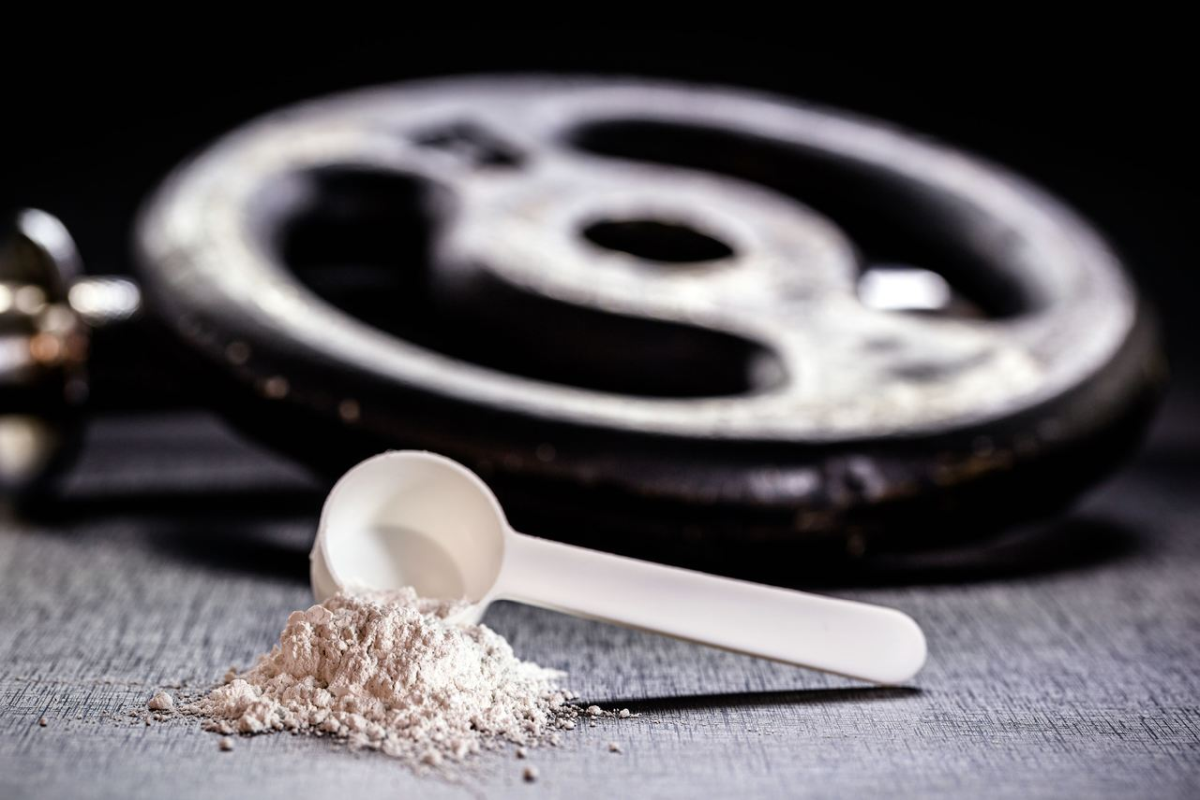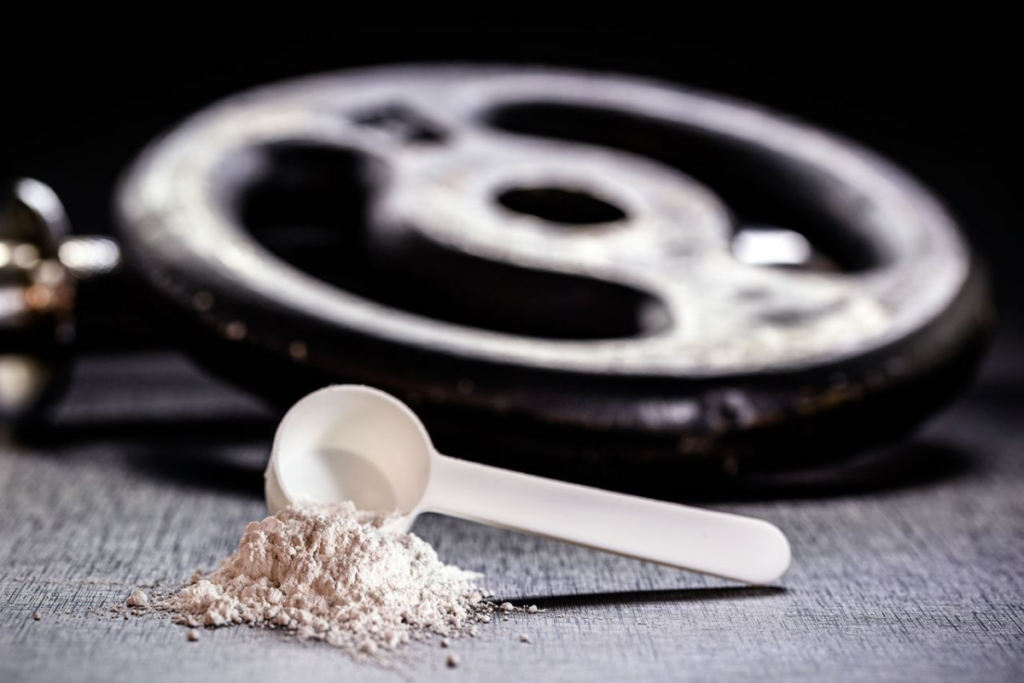Aqui está a tradução do texto para o inglês:
Benefits of Creatine
In this article, you will discover what creatine is used for and its main benefits. Learn all about it!
Creatine is one of the most commonly used supplements among athletes. And it’s no surprise, as it contributes to increased strength and muscle mass. Therefore, in this article, we’ve prepared a list to help you understand what creatine is used for, its main benefits, and other related questions about this supplement.
At some point in everyone’s life, people seek to adopt healthier habits and incorporate physical activities into their routine. As a result of these lifestyle changes, it’s common for people to look for supplements that promise quick results to enhance their performance during physical activities.

What is Creatine?
Before anything else, you need to understand what this supplement is. Creatine, in its organic form, has two main sources: first, it’s produced naturally by our body in the kidneys, pancreas, and liver, and it’s made up of the amino acids glycine, arginine, and methionine. Additionally, creatine can also be obtained through food, particularly from meat and fish.
In our bodies, creatine is primarily stored in muscle fibers, though it is found in smaller amounts in the brain. In short, its function in the body is to provide energy to our muscles.
What is Creatine Used For?
As mentioned earlier, the primary function of creatine is to produce energy for our muscle cells. This means that supplementing with creatine will stimulate the muscles’ capacity to perform, boosting their strength and potential during physical activities.
Moreover, numerous studies show that proper supplementation, combined with a balanced diet and regular strength training, can bring great benefits to both beginner and professional athletes.
In other words, creatine provides more energy to muscle cells, enhances performance during workouts, reduces the effects of aging, increases strength, and boosts workout potential. It can also improve cognitive abilities and brain function, enhance metabolism, aid in gaining lean muscle mass, fight fatigue, and speed up muscle recovery.
Who Can Take Creatine Supplement?
You might be wondering, “What’s the point of creatine supplementation if our body already produces it and it’s found in food?” Well, we’re here to clear that up!
The purpose of dietary supplements is to complement a diet and provide nutrients that may be lacking or that cannot be consumed in large amounts through food.
In the case of creatine, our bodies produce a limited amount—about 1g per day—and we ingest another 1g through food.
Therefore, supplements are a great ally for those who want to increase the amount of creatine in their bodies, especially athletes who practice bodybuilding or sports that require great effort and rapid muscle recovery.
Creatine is particularly effective in high-intensity, short-duration activities, especially exercises that involve muscle explosiveness or running. So, this supplement is not recommended for sedentary individuals or those who don’t engage in strenuous physical activities.
Additionally, supplementation can be crucial for individuals who follow vegan or vegetarian diets, as they may have lower amounts of creatine due to dietary restrictions. Fortunately, there are cruelty-free creatine supplements available, and you can find a variety of these in the market.
Can You Buy Creatine Without a Prescription?
Yes, you can find and purchase creatine supplements without a prescription. However, it’s important to note that before starting any supplementation, it’s vital to consult a specialized professional, such as a nutritionist or a medical doctor, to guide you in your diet. They will help ensure that you take supplements correctly and in the right amounts.
Does Creatine Have Side Effects?
Now that you know what creatine is used for, it’s time to address some myths and common questions about the supplement.
One of the main concerns is whether creatine causes weight gain, increases urination, or leads to side effects like diarrhea, acne, or kidney stones. What you need to know is that many of these concerns are just myths without scientific backing.
What we can confirm is that the side effects of creatine occur when it is not consumed in moderation or without professional guidance. Like any other supplement, creatine can harm the body if not taken properly.
It’s especially important to stay hydrated when using creatine, as it can impact the kidneys and liver. Creatine use with insufficient water intake can overload the kidneys.
That being said, creatine is not an anabolic steroid; it is simply a well-studied dietary supplement that experts have classified as safe and highly effective in sports nutrition.
How Much Creatine Should You Take Per Day?
Finally, you need to understand that just knowing what creatine is used for or any other supplement isn’t enough. To get the desired results in the shortest time possible without harming your health, it’s crucial to use these substances properly.
Regarding the daily amount of creatine, there are different consumption strategies based on factors like workout intensity or an athlete’s weight.
According to Anvisa (the Brazilian Health Regulatory Agency), the recommended daily intake of creatine is 3g. However, some protocols recommend higher doses. Therefore, it’s crucial to always consult a professional who will help you choose the best strategy for achieving your goals safely and effectively.
Additionally, there are no specific rules about whether it’s better to consume creatine before or after a workout. The benefits of creatine don’t happen immediately, so regular supplementation is key to achieving physical goals.
What Are the Forms of Creatine Consumption?
Creatine is generally consumed in powder form. You can mix it with water, any beverage of your choice, or even with a meal. Some studies suggest that consuming creatine with carbohydrate-rich foods, such as fruit juices, can increase its accumulation in muscles.
Lastly, it’s essential to maintain a balanced and nutrient-rich diet as it will be your greatest ally in achieving the best results, alongside your exercise routine and participation in other sports.

